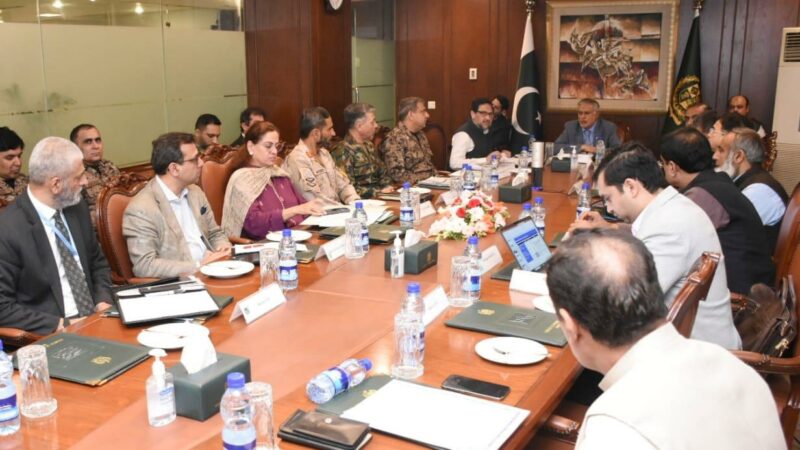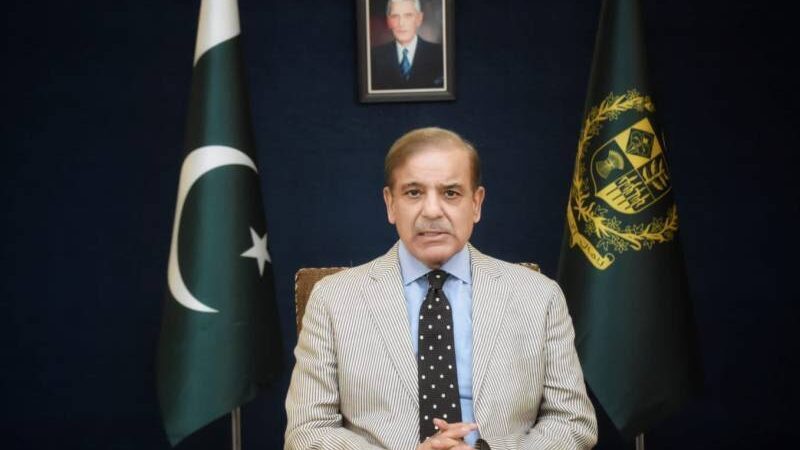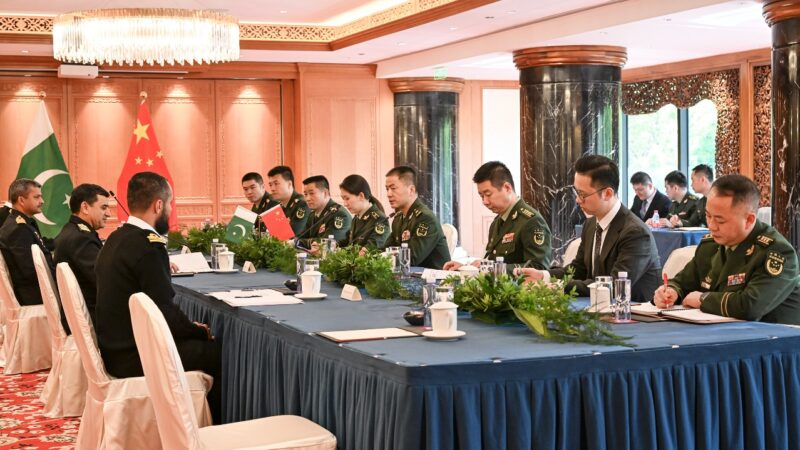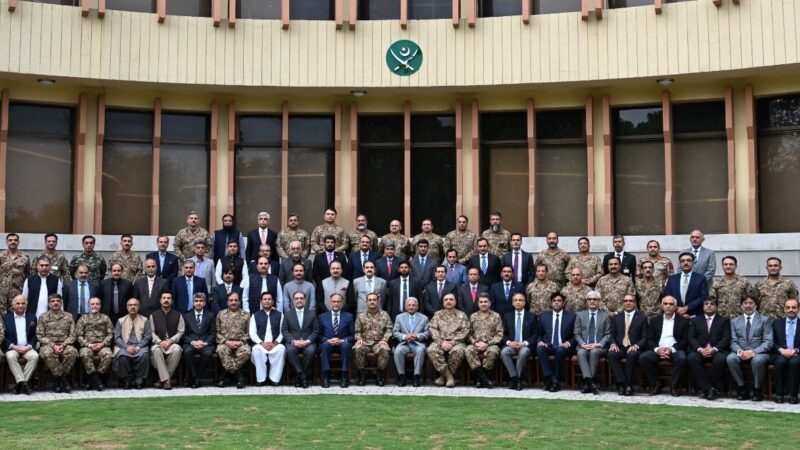By Qamar Bashir
Former Press Secretary to the President
Former Press Minister to the Embassy of Pakistan to France
Former MD, SRBC
The new government, a continuation of the coalition that came into power in April 2022 and the interim administration established in August 2023, suggests continuity in bilateral relations with the USA and China. However, while there appears to be no major policy shift, the government, which assumed power with the support of PPP, MQM, and independent candidates, is primarily composed of PML(N), with Nawaz Sharif’s influence in the background. This dynamic suggests the possibility of a reassessment of foreign policy priorities and potential minor adjustments.
First and foremost, the new government may prioritize a reassessment of its relations with the USA and China, recognizing their crucial role in the security, development, and prosperity of the country. The apparent tilt of the US towards India, coupled with its diminishing focus on bilateral relations with Pakistan and its disengagement from balancing relations between Pakistan and India, should be of significant concern for the new government.
Over the past decade, the multifaceted relationship between the United States and India has evolved and deepened across various sectors, including diplomacy, defense, trade, and technology. Both nations have strengthened strategic cooperation, evident in the signing of key defense agreements and increased joint military exercises. Economically, bilateral investment and trade have flourished, with the US emerging as the top source of Foreign Direct Investment (FDI) in FY2023, totaling $103 billion. India-US goods and services trade was estimated at $191.8 billion in 2022, with a significant trade surplus favoring India. Specifically, US exports to India amounted to $73.0 billion, while imports reached $118.8 billion, resulting in a trade deficit of $45.7 billion.
Proportionally, the US-Pakistan relationship has indeed grown increasingly strained over the past decade. The US accuses Pakistan of harboring militant groups and providing insufficient support in Afghanistan, leading to aid cuts. The 2011 raid that killed Osama bin Laden on Pakistani soil further exacerbated distrust. Disagreements over US-India ties and Pakistan’s nuclear program add to the complexity. Events like the Raymond Davis incident in 2011 further deteriorated trust.
The US perceives China-Pakistan cooperation as potentially bolstering China’s influence in a strategically important region. Concerns about China’s growing military presence in the region, with Pakistan’s perceived facilitation, have heightened US apprehensions. Additionally, US concerns about Pakistan-China military cooperation include worries about the transfer of sensitive military technology from China to Pakistan. The US has expressed particular dissatisfaction with the China-Pakistan Economic Corridor (CPEC) projects, citing concerns about transparency regarding the debt burden for Pakistan and the increasing leverage China holds over the country.
These strained relations are evident in the volume of trade and investment between the US and Pakistan. Total US exports to Pakistan amounted to $3.2 billion, while total imports were a modest $6.0 billion, resulting in a trade deficit of $2.8 billion for the US. Furthermore, total US investment in Pakistan was a mere $127 million in 2022, reflecting the diminished economic ties between the two countries.
Certainly, here’s a coherent paragraph summarizing the perceptions and allegations regarding the United States’ involvement in Pakistan:
There have been persistent allegations of United States involvement in Pakistan’s internal affairs, ranging from the installation of military dictatorships to meddling in domestic politics. Accusations include empowering certain political parties, manipulating election results, and dictating Pakistan’s foreign policy to align with American interests. Additionally, the US has been accused of using foreign aid as leverage, providing assistance to governments perceived as compliant and withdrawing it as punishment for actions contrary to US objectives. Perceptions also suggest significant US influence over Pakistan’s security policies, particularly in counterterrorism efforts and regional stability.
Compared to the USA, China has never been accused of interfering in the internal affairs of Pakistan. There is no evidence, since the inception of Pakistan, suggesting Chinese involvement in Pakistani politics, orchestrating regime changes, cultivating political elements in the country, or fomenting political, religious, or ethnic unrest. China has not coerced Pakistan into adopting certain policies or refraining from adopting others, nor has it demanded air passage or military bases in Pakistan. It does not harbor hegemonic designs in Pakistan or the region and adjusts to any government in power without favoring specific politicians or political parties. China does not influence Pakistan’s foreign policy determinants and does not impede Pakistan from maintaining friendly relations with any other country, including the US or India.
In the case of the China-Pakistan Economic Corridor (CPEC), China has actively encouraged all countries, both within the region and beyond, to become partners. Despite criticisms from the US and international monetary institutions under its influence regarding CPEC’s transparency and debt implications, the Pakistani government has not shared those concerns. Pakistan views China as a gracious and forgiving partner in development and prosperity, portraying China as a kind-hearted and warm friend always ready to rescue the country from financial difficulties, address investment requirements, enhance trade, support defense and security needs, and assist with loan rescheduling and debt payments, all in a transparent and verifiable manner.
While China’s policy approach extends beyond Pakistan to encompass gracious and benevolent partnerships worldwide and within the region, including India, it seeks engagement with India without harboring any malice. However, India, known for its strategic acumen, perceives the US and Europe as more lucrative partners compared to China. India capitalizes on the fear of the US and Europe regarding the unprecedented rise of China, portraying China as the primary threat to their interests. India positions itself as the frontline defense against increasing Chinese influence, aiming to divert trade, investment, and financial, economic, and military aid towards itself to strengthen its defense and economy.
In contrast to the belligerent postures of the US, Europe, and India, all evidence suggests that China does not harbor hegemonic or supremacist designs. Instead, it demonstrates an extreme eagerness to establish partnerships with all countries on equal footing, aiming to create win-win situations and foster shared development, growth, and prosperity for a more prosperous future for all. The belligerent stance of the USA towards China is not solely due to China’s benign rise but also because the US relies on the existence of an adversary to sustain itself, and this time it has identified China for that role. In contrast, China consistently rejects being perceived as an enemy of the US, instead making deliberate and consistent efforts to dispel unfounded fears held by the US and Europe regarding China’s rise on the world stage.
The best course of action for the new government is to dispel the impression that it is prioritizing friendly relations with China at the expense of USA or European interests in the region. Pakistan should also study China’s foreign policy posture and learn how it navigates the turbulent waters of international relations. Despite facing formidable challenges, threats, sanctions, and trade and investment barriers, China has found ways to achieve its foreign policy objectives without resorting to military force or threats. Instead, China utilizes its robust and effective diplomatic assets, supported by its economic strength and willingness to share its resources in economics, defense, technology, and culture with all countries. This approach aims to create win-win situations globally.






